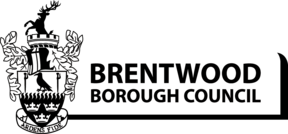Regulations
Regulations
We have adopted the Acupuncture, Tattooing, Semi-Permanent Skin Colouring, Cosmetic Piercing and Electrolysis Model Byelaws (PDF) to ensure the cleanliness of premises and the sterilisation of equipment used in these procedures which involve piercing the skin.
Premises are inspected by Environmental Health Officers to ensure that the standards are complied with.
A list of businesses registered to carry out acupuncture, tattooing, cosmetic piercing, semi-permanent skin colouring or electrolysis is available from the Town Hall or by calling 01277 312500.
How to apply
You must register with us before carrying out any acupuncture, tattooing, cosmetic piercing, semi-permanent skin colouring (including lip blush and microblading) or electrolysis in Brentwood. You must not apply if you can’t meet the standards as set out in our byelaws (PDF). It is illegal to conduct any of the above treatments unless the registration has been formally approved and certification provided by us.
You will need to register your premises and every practitioner for each form of treatment you perform. You must also register mobile services, practitioners working from home and chemists and jewellers doing ear piercing. You must be registered at every premises you work at within Brentwood Borough.
You’re not required to register with us for procedures that don’t involve the piercing of skin, such as:
- sun beds
- leg waxing
- manicure
- pedicure
- facials
- eyelash tinting
- spray tanning
- nail extensions
We also don’t register treatments involving botulinum toxin or injectable fillers.
Registration is not required if the treatment is carried out under the supervision of a medical practitioner registered with the General Medical Council (GMC).
The purpose of registration is to prevent infection of the person whose skin is pierced. Registered skin piercing and beauty treatment personnel and premises must comply with our byelaws.
Inspection
Once we have received your application, we will aim to visit you, by appointment, within 14 days to inspect facilities and discuss practices and procedures, against the standards in our byelaws. You should complete your application before you are due to open.
You should also have the following documents available:
- a copy of your sharps or clinical waste contract
- a blank copy of your patient consent form
- a copy of your aftercare form(s)
- your cleaning schedule
- training certificates
- a copy of your public liability insurance and professional treatment risk insurance
- product data sheets for tattoo and micropigmentation inks or pigments
- verification forms for autoclave equipment
After the inspection, we will write to you confirming any work you need to do and then revisit to confirm all necessary work has been done. We will then issue your registration certificate and a copy of the byelaws. You can start to trade when you have received and displayed these.
We cannot refuse to register a premises or practitioner, but we will inspect your premises to make sure they meet the required standards. If you are in breach of the byelaws or the Health and Safety at Work Act 1974 and you fail to act on advice we give you, we can take legal action. This could result in the Magistrates Court withdrawing your registration.
Apply
To register, complete the relevant online form(s), including the online payment.
The registration fee is a one-off payment (annual renewal not required) unless you employ more practitioners or move premises.
Our fees are £93 for a Practitioner and £262 for a Premises. To set up a new business, you must apply for both registrations. Existing registered businesses should apply for additional practitioner registration to cover any new persons wishing to carry out such activities.
Guidance
To get free advice and safe practice guidance endorsed by the Chartered Institute of Environmental Health, Public Health England, the Health and Safety Laboratory, and the Tattoo and Piercing Industry Union, view the Tattooing and body piercing guidance toolkit (PDF). The guidance also includes template consent forms, aftercare advice leaflets and a good practice infection control audit tool.
We strongly advise you to take regulated or accredited qualifications for the treatments you want to provide (for example NVQ, City and Guilds, CIDESCO, CIBTAC, ITEC or equivalent). Find out more about Accredited qualifications. Training should meet National Occupational Standards and the awarded qualification should be regulated. For more information and to check whether a qualification is regulated, visit UK Standards or Ofqual.
Tattoo and micropigmentation inks and pigments must be sterile and free of toxic metals and other hazardous substances. It’s good practice to purchase inks and pigments from a reputable supplier and only those that come with a detailed product data sheet, to reduce the risk of contamination. You can search for tattoo and micropigmentation inks which have passed the Council of Europe Resolution requirements (CoE ResAP 2008), an EU recognised benchmark. The inks have been certified by the Chemical Technological Laboratory who have been conducting tests on tattoo colours and permanent make-up for several years. You can search for inks on their Tattoo and permanent make-up database.
Other treatments
Essex County Council are the authority responsible for the issuing of Massage and Special Treatment licences under Part VI of the Essex Act 1987. They license treatments such as:
- massage
- manicure
- reflexology
- kinesiology
- sauna
- light, Laser or IPL for cosmetic purposes
- radiant heat
- electric or vapour treatments
And other similar treatments.
For more information, visit Essex County Council.
